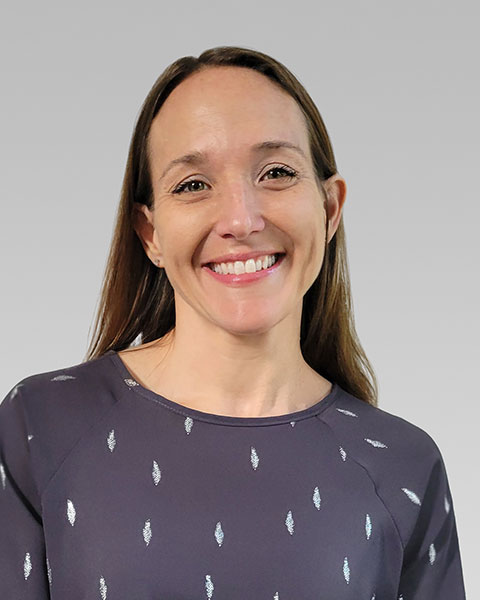Couples / Close Relationships
Symposium 04 - Adapting evidence-based cognitive and behavioral interventions for individual, couple, and family delivery for individual psychopathological distress relief
Level of Familiarity: Moderate
Recommended Readings: Foa, E. B., Hembree, E. A., Rothbaum, B. O., & Rauch, S. A. M. (2019). Prolonged exposure therapy for PTSD: Emotional processing of traumatic experiences: therapist guide (Second edition). Oxford University Press., Monson, C. M., & Fredman, S. J. (2012). Cognitive-behavioral conjoint therapy for PTSD: Harnessing the healing power of relationships. Guilford., Resick, P. A., Monson, C. M., & Chard, K. M. (2017). Cognitive processing therapy for PTSD: A comprehensive manual. Guilford Press.,
-

Katherine OConnell, M.S. (she/her/hers)
Doctoral Candidate
Seattle Pacific University
Mercer Island, Washington, United States -
SF
Steffany Fredman, Ph.D. (she/her/hers)
Associate Professor
The Pennsylvania State University
University Park, Pennsylvania, United States -
SC
Sarah Carter, Ph.D. (she/her/hers)
Research Assistant Professor
Uniformed Services University of the Health Sciences
Bethesda, Maryland, United States -
KK
Kayla Knopp, Ph.D. (she/her/hers)
Research Psychologist
VA San Diego Healthcare System/University of California, San Diego
San Diego, California, United States -
KL
Kristen Lamp, Ph.D. (she/her/hers)
Psychologist
Atlanta VA Healthcare System
Decatur, Georgia, United States -

Rachel Liebman, Ph.D.
Clinical Psychologist
University Health Network
Toronto, Ontario, Canada -
SO
Shira Olsen, Ph.D. (she/her/hers)
Seattle Pacific University
Bellevue, Washington, United States
Chair(s)
Discussant(s)
Presenter(s)
Treating trauma and severe emotional dysregulation using evidence-based cognitive and behavioral treatments at the individual level is highly effective (Schnurr et al., 2022; Gillespie et al., 2022). Still, individual therapy may overlook how the interpersonal systems interact with psychopathological distress. This talk reviews the adaptation and application of evidence-based cognitive and behavioral treatments (Foa et al., 2019; Monson & Fredman, 2012; Resick et al., 2017) across different interpersonal levels—individual, couple, and family—to prevent and alleviate acute distress.
Leveraging system approaches to address specific challenges, including low treatment engagement and complex presenting issues, can enhance treatment effectiveness. Adjusting therapy from individual to dyadic levels enhances treatment engagement (Shepherd-Banigan et al., 2023) and targets specific trauma symptoms effectively (Macdonald et al., 2016). Other presenting problems within a couple pose unique challenges, such as infidelity and suicide/self-harm risk. Infidelity, a primary cause of relationship dissolution (Rokach & Chan, 2023), is commonly addressed within couples therapy (Baucom et al., 2018). Suicidal and self-harm risk associated with Borderline Personality Disorder (BPD) challenges clinicians (Woodbridge et al., 2022) and presents with relationship distress as a diagnostic feature.
The first presenter begins the symposium by introducing how interpersonal emotional regulation and intimate relationship functioning are intertwined. Subsequently, the second presenter teases apart how much trauma symptoms must decrease to improve relationship functioning. Then, three researchers adapt treatments for trauma, suicidality and self-harm, and infidelity across family, dyadic, and individual levels, departing from traditional delivery methods. The third presenter integrates family support into trauma-focused therapy to explore links between relationship conflict and treatment engagement. The fourth presenter treats individuals with BPD dyadically to determine whether targeting interpersonal processes within intimate relationships can decrease the risk of suicide and self-harm. Finally, the fifth presenter shifts from dyadic to individual delivery of evidence-based treatment for infidelity, aiming to improve relationship functioning and alleviate trauma symptoms. Our discussant, an expert on couple-based treatments for individual psychopathology and relationship distress, will synthesize findings regarding the importance of situating individuals within a broader interpersonal community to promote patient, partner, and relationship well-being.
Learning Objectives:
- Present an overview and evaluation of how interpersonal relationships are associated with acute individual psychopathological distress.
- Present data and evidence from cognitive and behavioral experiments that leverage systemic levels to maximize the treatment efficacy.
- Describe key mechanisms of distress reduction using cognitive and behavioral treatment adaptations at different system levels.
- Clinicians trained in CPT could apply briefed techniques in practice to treat individuals presenting for distress related to infidelity.
- Clinicians could return to clinic and alter treatment goals to treat trauma conjointly with relationship distress to improve overall well-being.
- Realize how much the level of subjectively experienced PTSD symptoms needs to decrease for an individual for their relationship to improve.
- Clinicians should a solid understanding of how dyadic and family involvement greatly influences treatment engagement.
Presentations:
-
8:30 AM - 10:00 AM EST(SYM 4) Get Better Together: Preventing Harmful Behaviors Through Improved Relationship Functioning
Speaker: Sarah Carter, Ph.D. (she/her/hers) – Uniformed Services University of the Health Sciences
Co-author: Kathryn Alvarado, ENS – Uniformed Services University of the Health Sciences
Co-author: Kayleigh Adamson, MS – Uniformed Services University of the Health Sciences
Co-author: Jessica LaCroix, PhD – Uniformed Services University of the Health Sciences
Co-author: Marjan Ghahramanlou-Holloway, PhD – Uniformed Services University of the Health Sciences
Co-author: Erin Cobb, PhD – Uniformed Services University of the Health Sciences
-
8:30 AM - 10:00 AM EST(SYM 4) Benchmarking Improvements in Intimate Relationship and Psychosocial Functioning to Dyadic PTSD Treatment Outcomes
Speaker: Kayla Knopp, Ph.D. (she/her/hers) – VA San Diego Healthcare System/University of California, San Diego
Co-author: Lauren Sippel, PhD – Geisel School of Medicine at Dartmouth, VA Northeast Program Evaluation Center
-
8:30 AM - 10:00 AM EST(SYM 4) Family Supported Prolonged Exposure Compared to Standard Prolonged Exposure Therapy for PTSD: Role of Relationship Type, Conflict, Depth, and Functioning in Treatment Retention
Speaker: Kristen Lamp, Ph.D. (she/her/hers) – Atlanta VA Healthcare System
-
8:30 AM - 10:00 AM EST(SYM 4) Suicidal, Self-injurious and Mental Health Outcomes from an Uncontrolled Trial of Sage: A Couple Therapy for Borderline Personality Disorder
Presenter: Sonya Varma, M.A. (she/her/hers) – York University
Speaker: Rachel Liebman, Ph.D. – University Health Network
-
8:30 AM - 10:00 AM EST(SYM 4) Adapting Cognitive Processing Therapy to the Treatment of Betrayal Trauma Symptoms Following Discovery of Sexual Infidelity
Speaker: Keri Clark, PhD (he/him/his) – Pacific Behavioral Healthcare
Co-Author: Shira A. Olsen, Ph.D. (she/her/hers) – Seattle Pacific University
Co-author: James Olsen, PhD (he/him/his) – Pacific Behavioral Healthcare
Co-author: Katherine L. OConnell, M.S. (she/her/hers) – Seattle Pacific University

.png)
